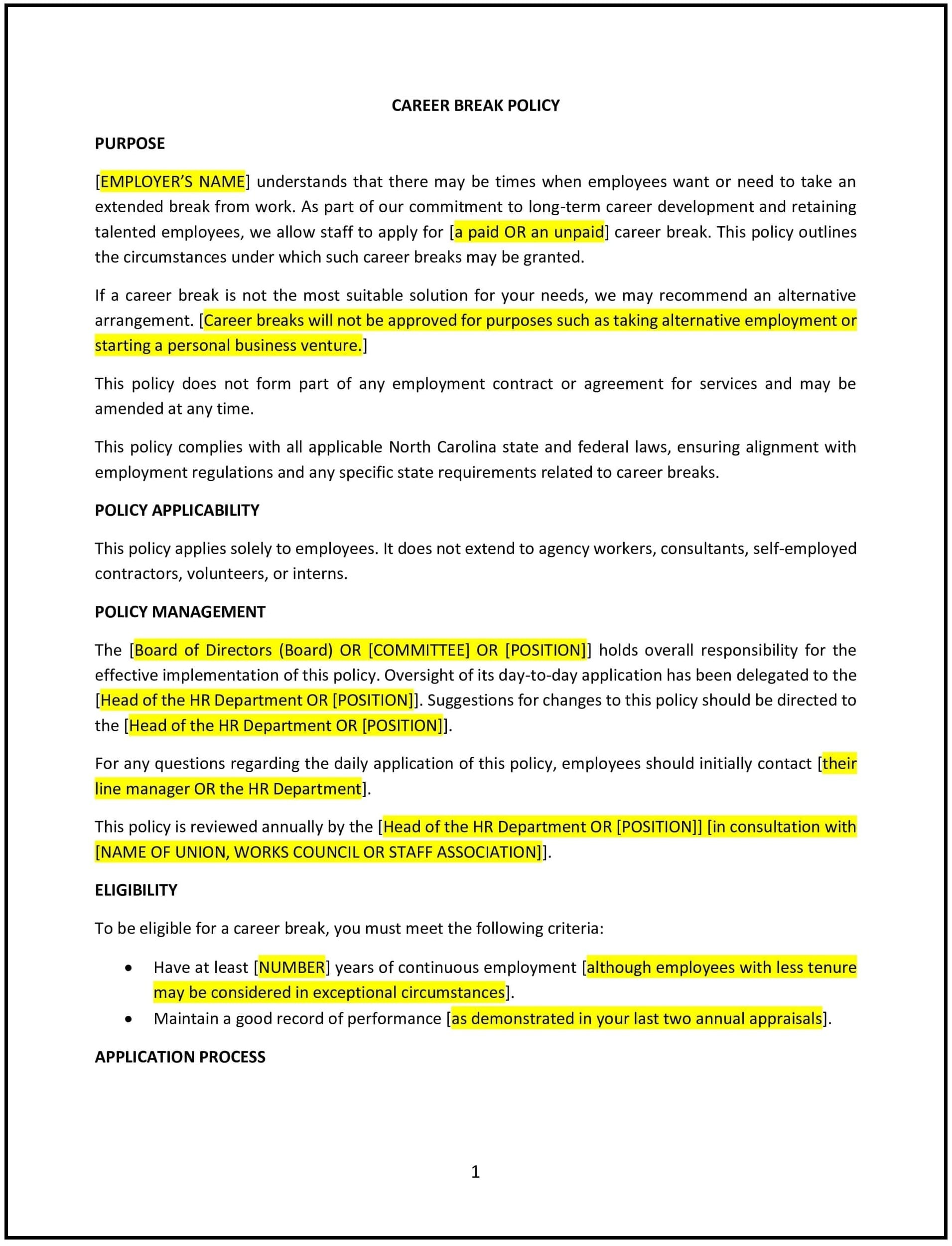Career break policy (North Carolina): Free template
Got contracts to review? While you're here for policies, let Cobrief make contract review effortless—start your free review now.

Customize this template for free
Career break policy (North Carolina)
A career break policy helps North Carolina businesses support employees who wish to take extended periods of time off from work for personal, educational, or professional reasons. This policy outlines the process for requesting a career break, the duration of the break, and the rights and responsibilities of employees during their time away from work.
By adopting this policy, businesses can provide employees with flexibility, encourage long-term retention, and create an environment that values personal development and work-life balance.
How to use this career break policy (North Carolina)
- Define eligibility: Specify which employees are eligible for a career break, such as full-time employees who have been with the company for a certain period of time (e.g., one year).
- Set break duration: Outline the length of career breaks, specifying whether they are typically for months, up to a year, or longer, and any limits on the duration.
- Establish request procedures: Provide clear instructions for employees to request a career break, including any documentation they must submit (e.g., a formal request form) and the advance notice required.
- Clarify job security: Address whether employees on a career break are guaranteed the same position upon their return, and what steps they should take to keep in touch with the company during their absence.
- Address benefits during the break: Define whether employees will continue to receive benefits such as health insurance, retirement contributions, or paid time off while on a career break.
- Reflect North Carolina-specific considerations: Ensure the policy aligns with any relevant North Carolina labor laws, including paid and unpaid leave, and reflects any state-specific employee rights.
Benefits of using this career break policy (North Carolina)
This policy provides several benefits for North Carolina businesses:
- Retains valuable employees: Offering career breaks helps retain top talent by allowing employees to take extended personal or professional time off without the risk of losing their job.
- Supports work-life balance: A career break policy provides employees with the opportunity to focus on personal growth, family, or education, promoting a healthier work-life balance.
- Reduces turnover: Employees who feel supported in their personal goals are more likely to return to work with renewed motivation, reducing turnover costs.
- Enhances employee loyalty: By offering career breaks, businesses demonstrate that they value their employees’ needs and personal growth, fostering loyalty and commitment.
- Improves company reputation: A flexible work environment that includes career breaks can attract top talent who value work-life balance and career development opportunities.
Tips for using this career break policy (North Carolina)
- Communicate the policy clearly: Ensure all employees understand the career break policy, including eligibility, application procedures, and benefits.
- Be flexible: While the policy sets guidelines, be flexible with employees' specific needs, especially for long-term breaks.
- Set clear expectations: Ensure employees understand their obligations while on a career break, such as staying in contact with HR and any deadlines for returning to work.
- Review the policy regularly: The policy should be reviewed periodically to ensure it is in line with North Carolina labor laws and the needs of both the business and employees.